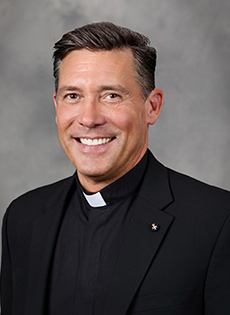
Liturgical renewal and the path beyond polarization
Monday, October 13, 2025
*Fr. Richard Vigoa
In a recent interview, Pope Leo XIV addressed head-on the liturgical debates that have unsettled the Church for decades. His remarks were marked by clarity and balance. He lamented the tendency to turn the liturgy into a political battleground, whether in disputes over the Traditional Latin Mass or in controversies surrounding the ordinary form. The Holy Father’s reminder was simple but profound: the liturgy is not meant to be an arena for ideologies, but the privileged place where the faithful encounter the living God.
Significantly, Pope Leo did not pit one form of the Mass against the other. He noted what many forget, that the ordinary form of the Mass may be celebrated in Latin with full reverence and dignity. At the same time, he acknowledged what has driven some of the polarization: when the ordinary form is celebrated casually, with novelty or neglect of the rubrics, many Catholics naturally look to the extraordinary form for the sense of prayer and mystery they seek. Yet, instead of viewing this as a permanent division, Pope Leo proposed a hopeful vision: if the Mass of Paul VI is celebrated faithfully and prayerfully, would the spiritual difference between the forms truly be so great?
This is not a break with Pope Francis, who in Traditionis custodes underscored fidelity to the Second Vatican Council as essential for Catholic unity. Francis himself recognized the “unbearable distortions” that have marred celebrations of the liturgy. Pope Leo takes that recognition further, pointing us not toward deepening divisions but toward renewal. The way forward, he suggests, is to reclaim the beauty, reverence, and sense of the sacred that Vatican II envisioned and that the faithful continue to long for.
Why does this matter? Because the liturgy is not a secondary issue. The Mass is the very source and summit of the Church’s life. When celebrated poorly, it weakens faith and alienates hearts. When celebrated with fidelity and beauty, it draws people to Christ and strengthens the entire Body. A divided Church cannot evangelize convincingly, but a Church that prays well can speak with one heart to a fractured world.
For us priests, the responsibility is clear. The renewal of the Church begins with the renewal of our liturgical life. This is why I make it a point to send out monthly liturgical notes, not to burden brother priests with technicalities, but to help sharpen our practice and keep us attentive to the sacred. Lex orandi, lex credendi, the way we pray shapes the way we believe. If our people are to encounter Christ, it must begin at the altar.
Pope Leo’s call is pastoral rather than ideological. He is not asking us to fight over preferences, but to rediscover the essence: that the Mass, in whatever form, must be a true encounter with Christ. That requires fidelity to the Church’s rites, reverence in our gestures, attention to silence, and humility before the mystery of the Eucharist.
For most Catholics, the real question is not whether the liturgy is in Latin or the vernacular, nor whether it is ordinary or extraordinary in form. The deeper question is whether the liturgy awakens in them awe before the living God. If we priests approach the altar as if nothing matters more, then our people will sense that it matters to them too. Offered with devotion, the Mass becomes what it truly is, the wellspring of Christian life and the summit of all we do.
In this light, Pope Leo’s words are more than commentary on a debate. They are a summons to renewal. Strategies and programs may serve the Church, but they will not save her. What renews the Church is Christ Himself, made present in the Eucharist, celebrated with fidelity and love.
This is why Pope Leo’s interview matters, not only for the Church at large, but especially for us as priests. The renewal of the liturgy is the renewal of the Church herself. And it begins very simply, yet profoundly, with the way we celebrate the Holy Sacrifice of the Mass.


Comments from readers